Black’s Law Dictionary, 1st Edition, page 469:
FACT. A thing done; an action performed or an incident transpiring; an event or circumstance; an actual occurrence.
In earlier days of law “fact” was used almost exclusively in the sense of “action” or “deed;” but, although this usage survives, in some such phrases as “accessary before the fact,” it has now acquired the broader meaning given above/
A fact is either a state of things, that is, an existence, or a motion, that is, an event. 1 Benth. Jud. Ev. 48.
In the law of evidence. A circumstance event, or occurrence as it actually takes or took place; a physical object or appearance, as it actually exists or existed. An actual an absolute reality, as distinguished from more supposition or opinion; a truth, as distinguished from fiction or error. Burrill, Circ. Ev. 218.
“Fact” is very frequently used in opposition or contract to “law.” Thus, questions of fact are for the jury; questions of law for the court. So an attorney at law is an officer of the courts of justice; an attorney in fact is appointed by the written authorization of a principal to manage business affairs usually not professional. Fraud in fact consists in an actual intention to defraud, carried into effect; while fraud imputed by law arises from the man’s conduct in its necessary relations and consequences.
The word is much used in phrases which contrast with law. Law is a principle; fact is an event. Law is conceived; fact is actual. Law is conceived; fact is actual. Law is a rule of duty; fact is that which has been according to or in contravention of the rule. The distinction is well illustrated in the rule that the existence of foreign laws is matter of fact. Within the territory of its jurisdiction, law operates as an obligatory rule which judges must recognize and enforce; but, in a tribunal outside that jurisdiction, it loses its obligatory force and its claim to judicial notice. The fact that it exists, if important to the rights of parties, must be alleged and proved the same as the actual existence of any other institution. Abbott.
The terms “fact” and “truth” are often used in common parlance as synonyms, but as employed in reference to pleading, they are widely different. A fact in pleading is circumstance, act, event, or incident; a truth is the legal principle which declares or governs the facts and their operative effect. Admitting the facts stated in a complaint, the truth may be that the plaintiff is not entitled, upon the face of the complaint, to what he claims. The mode in which a defendant sets up that truth for his protection is a demurrer. 4 E. D. Smith, 37.
As to the classification of facts, see DISPOSITIVE FACTS.
Black’s Law Dictionary, 2nd Edition, page 476:
FACT. A thing done; an action performed or an incident transpiring; an event or circumstance; an actual occurrence.
In earlier days of law “fact” was used almost exclusively in the sense of “action” or “deed;” but, although this usage survives, in some such phrases as “accessary before the fact,” it has now acquired the broader meaning given above/
A fact is either a state of things, that is, an existence, or a motion, that is, an event. 1 Benth. Jud. Ev. 48.
In the law of evidence. A circumstance event, or occurrence as it actually takes or took place; a physical object or appearance, as it actually exists or existed. An actual an absolute reality, as distinguished from more supposition or opinion; a truth, as distinguished from fiction or error. Burrill, Circ. Ev. 218.
“Fact” is very frequently used in opposition or contract to “law.” Thus, questions of fact are for the jury; questions of law for the court. So an attorney at law is an officer of the courts of justice; an attorney in fact is appointed by the written authorization of a principal to manage business affairs usually not professional. Fraud in fact consists in an actual intention to defraud, carried into effect; while fraud imputed by law arises from the man’s conduct in its necessary relations and consequences.
The word is much used in phrases which contrast with law. Law is a principle; fact is an event. Law is conceived; fact is actual. Law is conceived; fact is actual. Law is a rule of duty; fact is that which has been according to or in contravention of the rule. The distinction is well illustrated in the rule that the existence of foreign laws is matter of fact. Within the territory of its jurisdiction, law operates as an obligatory rule which judges must recognize and enforce; but, in a tribunal outside that jurisdiction, it loses its obligatory force and its claim to judicial notice. The fact that it exists, if important to the rights of parties, must be alleged and proved the same as the actual existence of any other institution. Abbott.
The terms “fact” and “truth” are often used in common parlance as synonyms, but as employed in reference to pleading, they are widely different. A fact in pleading is circumstance, act, event, or incident; a truth is the legal principle which declares or governs the facts and their operative effect. Admitting the facts stated in a complaint, the truth may be that the plaintiff is not entitled, upon the face of the complaint, to what he claims. The mode in which a defendant sets up that truth for his protection is a demurrer. Drake v. Cockroft, 4 E. D. Smith (N. Y.) 37.
–Collateral facts. Such as are. outside the controversy or are not directly connected with the principal matter or ‘issue in dispute. Sum merour v. Felker, 102 Ga. 254, 29 S.’m. 448; Garner v.State. 76.Miss. 515. 25 South. 863. Dispositive fact.. See that title.—Evidentiary facts. Those which have a legitimate bearing on the matter or question in issue and which are directly (not inferentially) established by the evidence in the case. Woodfil v. Patton, 76 Ind. 579, 40 Am. Rep. 259.–Facts in issue. Those matters of fact on which the plaintiff proceeds by his action and which the defendant controverts in his pleadings. Glenn v. Savage, 14 Or. 567, 13 Pac. 442; King v. Chase, 15 N. H. 9, 41 Am. Dec. 675; Capertin v. Schmidt, 26 Cal. 494, 85 Am. DEc. 187. –– Inferential facts. Such as are established not directly by testimony of other evidence, but by inferences or conclusions drawn from the evidence. Railway Co. v. Miller, 141 Ind. 533, 3 N. E. 343. Jurisdictional fact. Those matters of fact which must exist before the court can properly take jurisdiction of the particular case, as, that the defendant has been properly served with process, that the amount in controversy exceeds a certain sum, that the parties are citizens of different states, etc. Noble v. Railroad Co., 147 U. S. 165, 13 Sup. Ct. 271, 37 L. Ed. 123. — Material fact. (In contracts.) One which constitutes substantiality the consideration of the contract, or without which it would not have been made. Lyons v. Stephens, 45 Ga. 143. (In pleading and practice.) One which is essential to the case, defense, application, etc., an without which it could not be supported. Adams v. Way, 32 Conn. 168; Sangheger v Hosey, 26 W. Va. 223; Davidson v. Hackett, 49 Wis. 186, 5 N. W. 459. (In insurance.) A fact which increases the risk, or which, if disclosed would have been a fair reason for demanding a high premium; any fact the knowledge or ignorance of which would naturally influence the isurer in making or rfusing the contract, or in estimating the degree and character of the risk, or in fixing the rate. Boggs. v. Insurance Co., 30 Mo. 68; Calrk v. Insurance Co., 40 N. H. 338, 77 Am. Dec. 721; Murphy v. Insurance Co., 205 Pa. 444, 55 Atl. 19; Penn Mut. L. Ins. Co. v. Mechanics’ Sav. Bank, 72 Fed 413, 19 C. C. A. 286, 38 L. R. A. 33. — Principal fact. In the law of evidence. A fact sought and proposed to be proved by evidence of other facts (termed “evidentiary facts”) from which it is deduced by inference. A fact which is the principal and ultimate object of an inquiry, and respecting the existence of which a definite belief is required to be formed. 3 Benth. Jud. Ev. 3; Burrill, Circ. Ev. 3, 119. — Ultimate fact. The final or resulting fact reached by processes of logical reasoning from the detached or successive facts in evidence , an which is fundamental and determinative of the whole case. Levins v. Rovergno, 71 Cal. 273, 12 Pac. 161; Kahn v. Central Smelting Co., 2 Utah. 371; Caywood v. Farrell, 175, I11. 480, 51 N. E. 775.




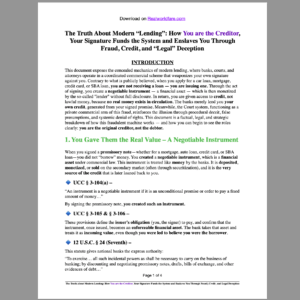
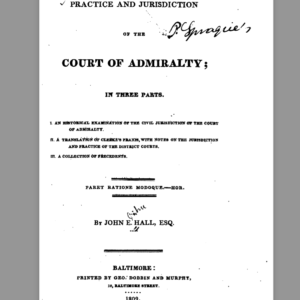
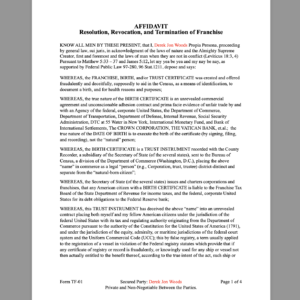

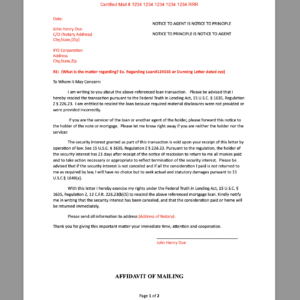
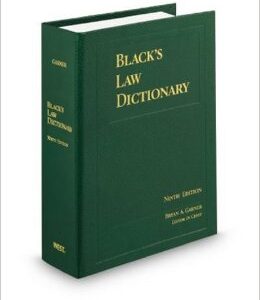



Recent Comments